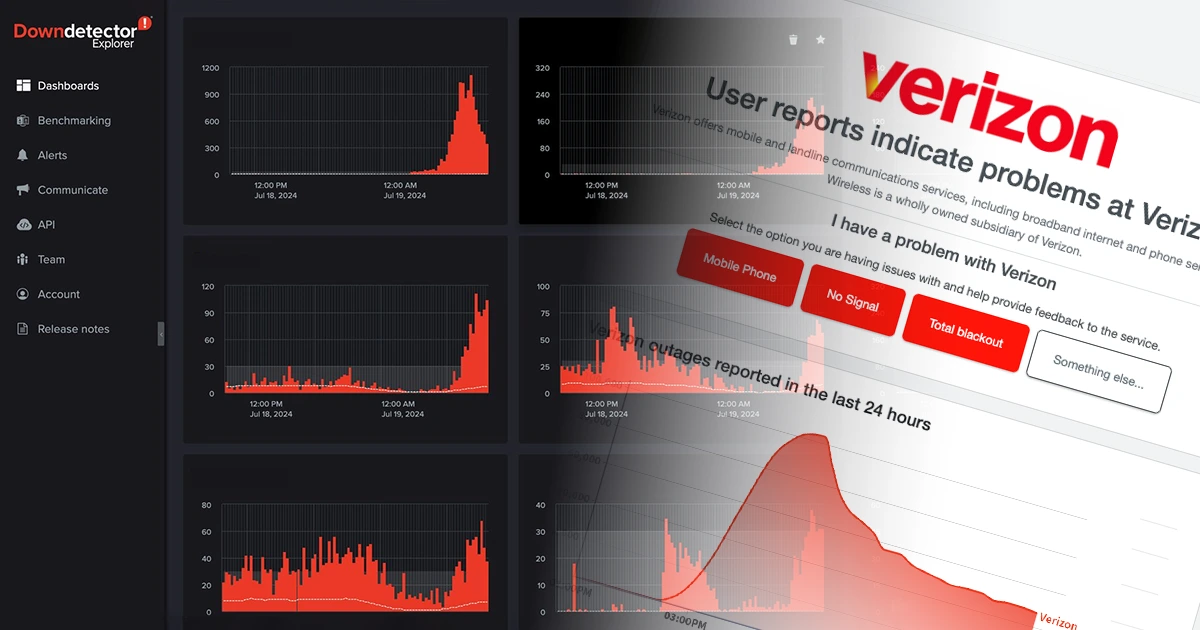When the Verizon outage update first hit the headlines this week, millions of users across the United States found themselves suddenly disconnected from work, family, and emergency services.
Verizon, one of the largest telecom providers, has faced outages before, but the scale of this one left many frustrated and worried. Understanding what went wrong, how customers responded, and what experts say about preventing future incidents is critical for everyone who depends on reliable connectivity.
According to early reports, the outage began in the early hours of the morning and lasted for several hours in key regions including New York, Washington DC and parts of California. Thousands of users reported losing cell service, internet access, and in some cases, even the ability to contact emergency numbers.
Downdetector, a website that tracks service disruptions, showed a massive spike in complaints with over 50,000 reports within just an hour. Many customers took to social media to share their frustration, turning the Verizon outage update into a trending topic nationwide.
Consider the story of Daniel Martinez, a small business owner in New Jersey who runs an e-commerce store. On the day of the outage, Daniel’s team was launching a new product line. Instead of celebrating sales, they faced a nightmare employees couldn’t log in to backend systems, customers couldn’t access support, and transactions stalled.
We lost nearly $4,000 in sales in just one morning, Daniel explained. It wasn’t just the money, it was the trust issue. Customers expect 24/7 access, and when your service provider goes down, your reputation suffers.
Daniel’s experience highlights a larger trend: in today’s digital economy, a single outage doesn’t just inconvenience individuals it can deeply affect small businesses and the livelihoods attached to them.
Telecom experts point out that outages like this often stem from a mix of technical glitches, infrastructure failures, or cyber vulnerabilities.
Dr. Rachel Kim, a network security analyst, suggests that the root cause could be linked to either a software misconfiguration or a sudden surge in network demand. Telecom systems are incredibly complex. Even a small error in routing can cascade into widespread disruption, she explained.
Another expert, Michael Harris, a former telecom engineer, emphasized redundancy: The real question isn’t whether outages will happen it’s how companies like Verizon prepare for them. Having multiple backup systems is the key to minimizing customer impact.
Daily Life Interrupted
For many ordinary people, the Verizon outage update wasn’t just about losing internet it disrupted daily routines. Emily Rogers, a college student in Los Angeles, shared that she missed an important virtual lecture because of the outage.
I rely on my hotspot for classes. Without it, I couldn’t attend, and now I’m worried about falling behind. Similarly, James Thompson, a retiree in Virginia, expressed concern over emergency communication.
I have a medical condition and need quick access to telehealth. For those few hours, I felt isolated and vulnerable. These personal stories show how connectivity has become more than convenience it’s a lifeline.
Verizon’s Response
In its official statement, Verizon apologized for the disruption and assured customers that engineers were working around the clock to resolve the issue. The company also announced it would investigate the root cause to ensure such failures are minimized in the future.
However, critics argue that apologies are not enough. Consumer advocacy groups are demanding more transparency and accountability. They want Verizon to not only explain what went wrong but also provide compensation to affected customers.
The Verizon outage update underscores a critical truth modern life depends on uninterrupted connectivity. Outages disrupt not only business and education but also emergency services, healthcare, and even national security.
Experts argue that telecom companies must invest more in infrastructure resilience, especially with the rise of 5G networks. Unlike previous technologies, 5G requires denser infrastructure and is more vulnerable to small disruptions.
Moreover, the outage highlights the need for diversification. Relying on one provider leaves individuals and businesses exposed. Analysts recommend having backup options, such as secondary carriers or satellite internet, to avoid complete shutdowns during such incidents.
The Verizon outage has delivered several key lessons for consumers and businesses, Always Have a Backup Plan Whether it’s a secondary internet provider or offline contingency plans, redundancy is crucial.
Stay Informed in Real Time Outage tracking sites and social media updates help users quickly identify whether the problem is local or widespread. Demand Accountability Customers should push for clearer communication and compensation when service providers fail.
The Verizon outage update is more than just a temporary inconvenience; it’s a reminder of how fragile our connected world can be. From small business losses to personal struggles, the impact was felt across the spectrum of society.
While Verizon has promised to strengthen its systems, experts believe that this incident should serve as a wake up call for the entire telecom industry.
In a world where connectivity equals opportunity, safety, and livelihood, the stakes are too high for repeated disruptions. Customers deserve reliability and the telecom giants must step up to deliver it.
